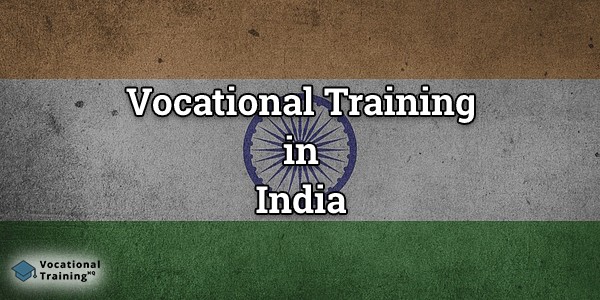India has shown remarkable progress in the sector of education in recent times but vocational training courses are still not regulated in many schools.
This has resulted in a major gap between the supply and demand of skilled manpower in the region.
The shortage of skilled workforce has led to an increase in the number of unemployed labor in the country.
In India, vocational training is provided as a part-time and full-time basis.
Full-time training is typically provided to the Industrial Training Institute which is also known as ITI while the part-time programs are offered to the students at the board of State Technical Education.
The vocational training in India has been only successful at the industrial level, that too at the engineering level.
Vocational Training in India is imparted by 2 main different bodies:
- Private owned Industrial Training Centre (polytechnics)
- Public Industrial Training Institutes
See Also – Understanding Vocational Training
Article Table of Contents [show]
Courses offered by Government of India:
- UDAAN: The vocational training program is specially designed for the students studying in the north side of India that is in Jammu and Kashmir. The program is for 5 years and in various sectors such as IT, BPO, and retail
- POLYTECHNIC: It provides three years of diploma course in traditional subjects such as engineering and computer science. The minimum eligibility of appearing for polytechnics courses is secondary level;
- PARVAAZ: The secondary aim of the program is comprised of minority students, BPL, dropouts or left-outs.
- NATIONAL URBAN LIVELIHOOD MISSION: The chief objective of this program is to provide vocational training to special students such as, disables, women, below the poverty line, and handicapped.
- TRAINING PROGRAMS BASED ON MODULAR EMPLOYABLE SKILL: the aim of the program is to provide a set of minimum skills that is just optimum to enter into the employment sector.
- AAJEEVIKA MISSION OF NATIONAL RURAL LIVELIHOOD: The purpose of the project is to employ the abilities of the population of rural poor by providing them with supplementary knowledge, tools, skill sets, and finance for bringing improvement in their livelihood options.
- PROGRAM OF SUPPORT TO EMPLOYMENT AND TRAINING: the objective of this program is to at upgrade skills of women specifically by converting their assets into viable talents useful for employment. It also aims at providing placements and access to facilities of credit for women.
- INSTITUTES OF SELF TRAINING AND EMPLOYMENT OF RURAL SECTOR: The main aim is to offer the youths of the rural areas with intensive, free, unique, short term, and residential employment self-training programs that include free of cost food and accommodation services to help undertaking of micro-enterprises and employment based on wages.
- CRAFTSMEN TRAINING SCHEME: the purpose of this scheme is to provide vocational education and training to the educated school leaving youths.
Durations of different programs:
There are two types of vocational programs in India:
- Part-time program: offered for industrial training
- Full-time programs: Offered through state educational technical boards.
There is a three tire system in Human Resource (HR) vocational training program in India:
- Certification level: for 10+2 students, they are trained through formal types of apprenticeships.
- Diploma level graduations program: for students trained under the Polytechnics as supervisors or technicians
- Graduation and post-graduation programs: for students trained under the specialists as a technologists or engineers
Eligibility criteria for Vocational training programs:
Every program has different eligibility criteria.
The minimum qualification in pursuing vocational training programs is students who have completed their 10th-grade education through any Board or have an equivalent diploma from polytechnics.
Diverse sectors of vocational training:
See all vocational programs
- Lab Technician
- Agriculture
- Automobile
- Information Technology
- Air conditioning
- Livestock management
- Agriculture
- Film & Television
- Commerce & Business
- Tourism
Challenges faced by Indian Students:
The system of vocational training in India face the following challenges-
- The number of dropouts is very high at the secondary level
- In India, vocational education is only offered to the student’s studying at grade 10+1 and 10+2.
- Lack of participation from the private industry sector
- The number of institutes providing vocational programs is very less.
- At every level, Vocationalization is not booming at all
- There is an acute shortfall for instructors as well as trainers in the field of vocational training
- Towards the demand of existing and upcoming industries, the current education system in India is highly non-responsive. However, build a gap between supply and demand.
Indian Government Initiatives:
To the extent to which various challenges are recognized, the government of India has comparatively taken fewer initiatives or measure towards the development of vocational training in the country.
This also includes- vocational modeling, vocational standards, developing skills council sectors, and vocational modeling.
Recently, a new initiative has been set up by the government of India – ‘National Skill Development agency’ which aims to regulate and coordinate all the workforce skills development programs.
The vocational training programs in India has brought all new real difference in the lives of the billions of people living in the country, they have developed self-confidence and leadership qualities, allowing students to optimize their talent in a unique way.
References:
- http://www.centumlearning.com/business-areas/vocational-education-and-training/
- https://timesofindia.indiatimes.com/india/Only-2-of-Indias-youth-have-vocational-training/articleshow/20020794.cms
- http://mhrd.gov.in/vocational-education-overview
- http://info.worldbank.org/etools/docs/library/235724/skills%20development%20in%20india%20the%20vocational%20education%20and%20training%20system.pdf

Please, I request we do Partnership and we open a College here in Northern Uganda.
Thanks.
Hon, Nyero Francis Elton Lakelle.
Currently i’m running my private business as a private contractor. Specialist in supply and installation of airconditioning. Service and repair fault aircons.
Also supply solar aircon and install.
Therefore I’m very interested in studying renewable energy and acquire technical skills and technical know how skills n knowledge from recognised institute.
2017- completed Australia Pacific Technical College at Fiji National University.
Courses study. CERTIFICATE iii IN REFRIGERATION AND AIRCONDITIONING.